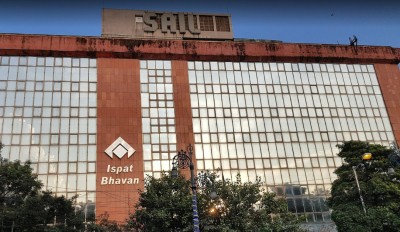 By Ravi Shanker Kapoor
By Ravi Shanker Kapoor
New Delhi, Aug 23 : The setting up of up a joint working group (JWG) between the public sector Rashtriya Ispat Nigam (RINL) and Korean steel major Posco will go a long way in attracting foreign direct investment (FDI) and boosting Prime Minister Narendra Modi’s ambitious Make in India project. The objective is a 2-5 million tonne per annum (MTPA) steel plant at Vizag.
The greenfield project, with an estimated investment of Rs 35,000 crore, has the government’s approval. In fact, the Steel Ministry played a key role in organising a video conference on July 23 between the executives of the two companies.
“During the meeting, it was agreed to set up a JWG consisting of representatives from Posco and RINL to facilitate the implementation of the MoU signed between the two companies regarding investment on land owned by RINL. The JWG would meet regularly to expedite the implementation of the MoU,” a Steel Ministry note said.
The Prime Minister’s Office (PMO) reportedly “prodded” the Ministry. Which means that Central government organs—like those controlled by the Bharatiya Janata Party’s state governments —will not play spoilsport.
Nobody, however, should get so sanguine as to assume that the JWG would bear fruit and the joint venture would soon take off, thus boosting growth and development. For decades of socialism and a decade under the Congress-led United Progressive Alliance regime have laid down enough landmines in the economy to trip any project.
The danger will persist so as long as the landmines are there. The compliances and clearances have been made extremely cumbersome and burdensome. Then there is the forest rights legislation; it can be an irritant for any industrial project. And, of course, there is the rich-versus-poor folklore: all industrial projects fatten capitalists, emaciate workers, damage the environment, and promote corruption.
The rainbow coalition of professional radicals, green activists, bleeding hearts and downright Luddites has been adding new fairy tales to the folklore, making it colourful but dangerous for the economy and the nation. This has badly hurt the functioning of businesses, resulting in more regulation.
Unsurprisingly, questions about clearances are raised even after the commencement of projects. Posco’s earlier foray in India fell victim to the folklore, the folklorists, and sundry naysayers, publicity hunters, extortionists, etc. Beginning in 2005 with a commitment to invest $12 billion, it was supposed to be the largest FDI in India. But, alas, it never happened. After struggling for 12 years in India to get a zillion clearances and placate various lobbies, it decided to wind up the project.
Thankfully, the government and RINL have managed to convince Posco to invest in India. Hopefully, the Korean is lucky the second time.
(This content is being carried under an arrangement with indianarrative.com)
Disclaimer: This story is auto-generated from IANS service.

